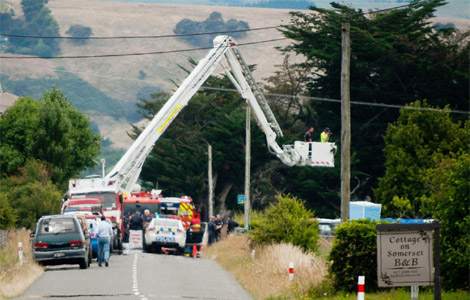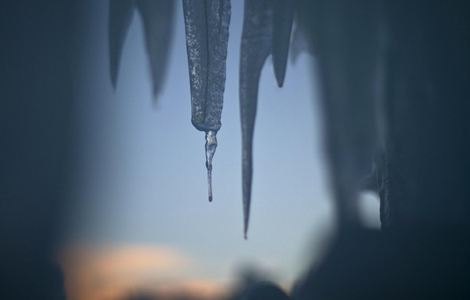Official says US 'should adhere' to int'l law
Updated: 2012-01-07 09:07
By Hu Yinan and Wang Yan (China Daily)
|
|||||||||||
BEIJING - Attempts to resolve the South China Sea issue through the intervention of an external "referee" won't work, a senior Chinese diplomat said.
Yi Xianliang, deputy director-general of the Department of Boundary and Ocean Affairs at the Ministry of Foreign Affairs, made the remark as US President Barack Obama reaffirmed Washington's growing focus on the Asia-Pacific as well as its military's "enhanced presence, power projection and deterrence" in the region.
Beijing is firmly against such moves as they "significantly undermine" peace and stability in the Asia-Pacific and jeopardize the common interests of all regional countries, Yi said during an online interview on Friday.
The interview, the second in a series with department leaders of the ministry, was co-hosted by the websites of People's Daily Online, China Daily, China News and the Foreign Ministry.
Reiterating China's stance that disputes in the South China Sea should be dealt with through negotiation between the parties directly involved, Yi said the issue of free navigation in the sea, which Washington says it is committed to protecting, is a false proposition.
The prosperity of East Asian economies and flourishing trade in the South China Sea, where one-third of the world's seaborne commerce passes, prove that there is no problem with freedom of navigation in the region, he said.
The existence of maritime disputes is not a reason for bringing up the issue of freedom of navigation, he added.
"The Americans themselves know why they are bringing up the issue of freedom of navigation in the South China Sea," Yi said.
"The US has told China many times that it holds no stance in related disputes and does not intend to let the South China Sea issue become an issue between China and the United States. We pay attention to this US position.
"Washington's roles and functions in the South China Sea should adhere to international law, and it should play by the rules," Yi said.
The US claim that it also has an interest in the South China Sea is an attempt at countering China's influence in the region, said Chu Hao, a researcher in Southeast Asian studies with the China Institutes of Contemporary International Relations.
"Freedom of navigation in the South China Sea has never come under threat from China," he said.
Friday's interview came a month after China hosted an international seminar on implementing the Declaration on Conduct of Parties in the South China Sea and maintaining the navigational freedom and security of the sea.
The nearly 60 officials and scholars from China and members of the Association of Southeast Asian Nations (ASEAN) that attended the seminar "widely accepted" that navigational security "has been effectively maintained", Xinhua News Agency said.
Three ASEAN members Vietnam, the Philippines and Malaysia - have pushed competing claims of sovereignty over some islands in the historically Chinese region. Brunei, too, holds claims there.
Tensions have escalated since 2009, when countries were asked to submit their outer continental shelf delimitation applications to the Commission on the Limits of the Continental Shelf, formed by the United Nations, said Chen Qinghong, Chu's colleague and a researcher on Philippine studies.
He also attributed the tension to rapidly rising energy needs of China and ASEAN as the security of traditional oil sources are at stake due to unrest in the Middle East and Africa. Washington's increasingly assertive Asia-Pacific strategy, too, has fueled disputes, Chen said.
China has called for shelving differences and seeking joint development of the sea.
"There are difficulties ahead in realizing the joint development of the South China Sea. But the assertion itself has strong vitality. So long as all sides show sincerity and wisdom, the ideas and ways for joint development are bound to be found," Yi said.
Chen, meanwhile, said as the bonds between China and ASEAN deepen, the South China Sea issue "will still remain an issue, but will be a better controlled one that won't explode".
Hot Topics
Kim Jong-il, Mengniu, train crash probe, Vaclav Havel, New Year, coast guard death, Internet security, Mekong River, Strait of Hormuz, economic work conference
Editor's Picks

|

|

|

|

|

|







